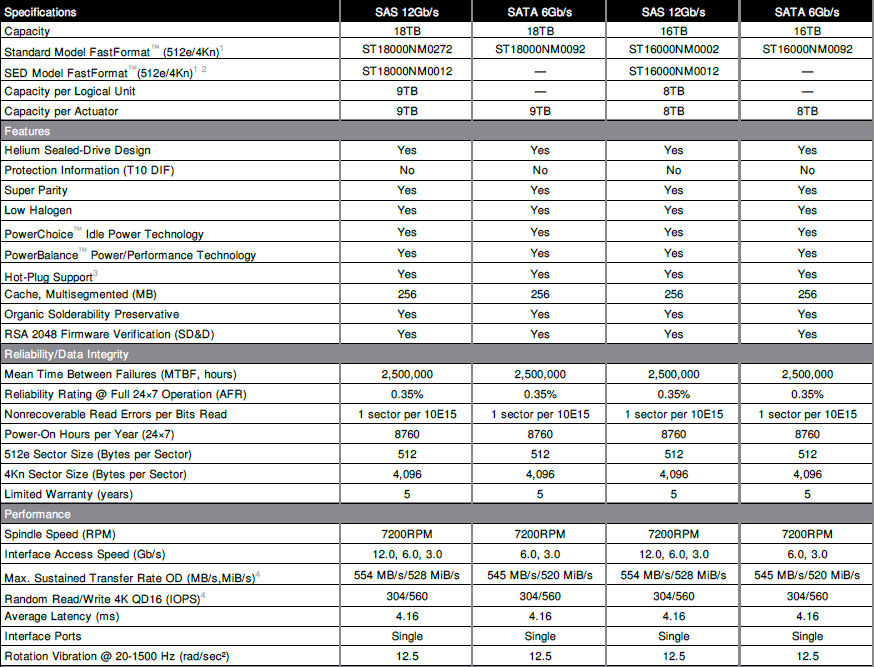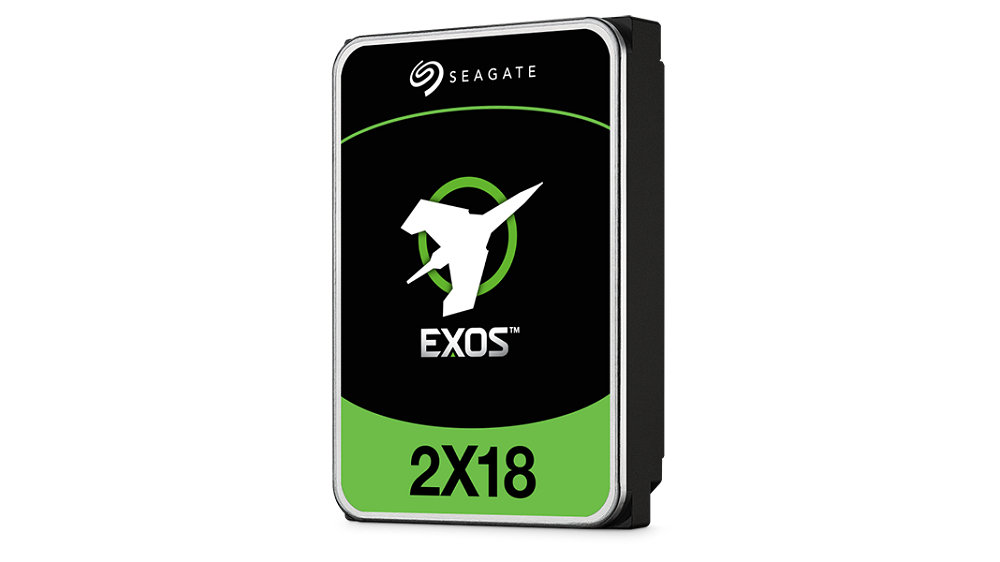Provides 18TB, 16TB capacity options, combined with second generation MACH.2 technology to enhance data throughput.
Seagate developed MACH.2 technology a few years ago, using multi-drive arm design to improve the access speed of hard drives. The latest generation model Exos 2X18 is ready, which will bring higher capacity and data throughput.
To meet the needs of enterprise storage applications, Exos 2X18 offers a variety of specification options at one time, such as 18TB and 16TB capacities, SAS 12Gb/s or SATA 6Gb/s transmission interface, standard and SED (Self-Encrypting Drive , self-encrypting hard drive), As per Fast format It supports 512e / 4Kn format. It has most of the same features as Exos series enterprise hard drives, such as MTBF of 2.5 million hours, 24/7 operational capability, PowerChoice and PowerBalance power management mechanism, hot swap , etc.

Exos 2X18 combined with MACH.2 multi-drive arm technology, the mechanical structure actually has 2 sets of drive arms, and the disks are divided into 2 logical drives, which is like the concept of internally completed RAID 0 construction. Therefore, the continuous transmission speed can reach up to 554MB/s (SAS 12Gb/s version) or 545MB/s (SATA 6Gb/s version), and the 4K random throughput is 304 IOPS and 560 IOPS for reading . Compared to the previous generation product Exos 2X14, the improvement in access speed is not excessive, but the maximum capacity increase of approximately 28% has its advantages.
Of course, even when compared only with SATA-interface solid-state drives, this access speed does not reverse the competition. However, for commercial applications that rely on using traditional hard drives to build huge storage spaces, Exos 2X18 is undoubtedly a breakthrough innovation.



